Something to look forward to: Microsoft offered a first look at Windows 11 today, and it looks like it's more than a beautified Windows 10. The new OS does sport a redesigned UI, but it will also come with new features designed to improve performance, productivity, and a new Microsoft Store that offers unprecedented freedom for developers to bring their apps in and monetize them however they want. It looks promising, but we'll pass our final judgment when it lands later this year.
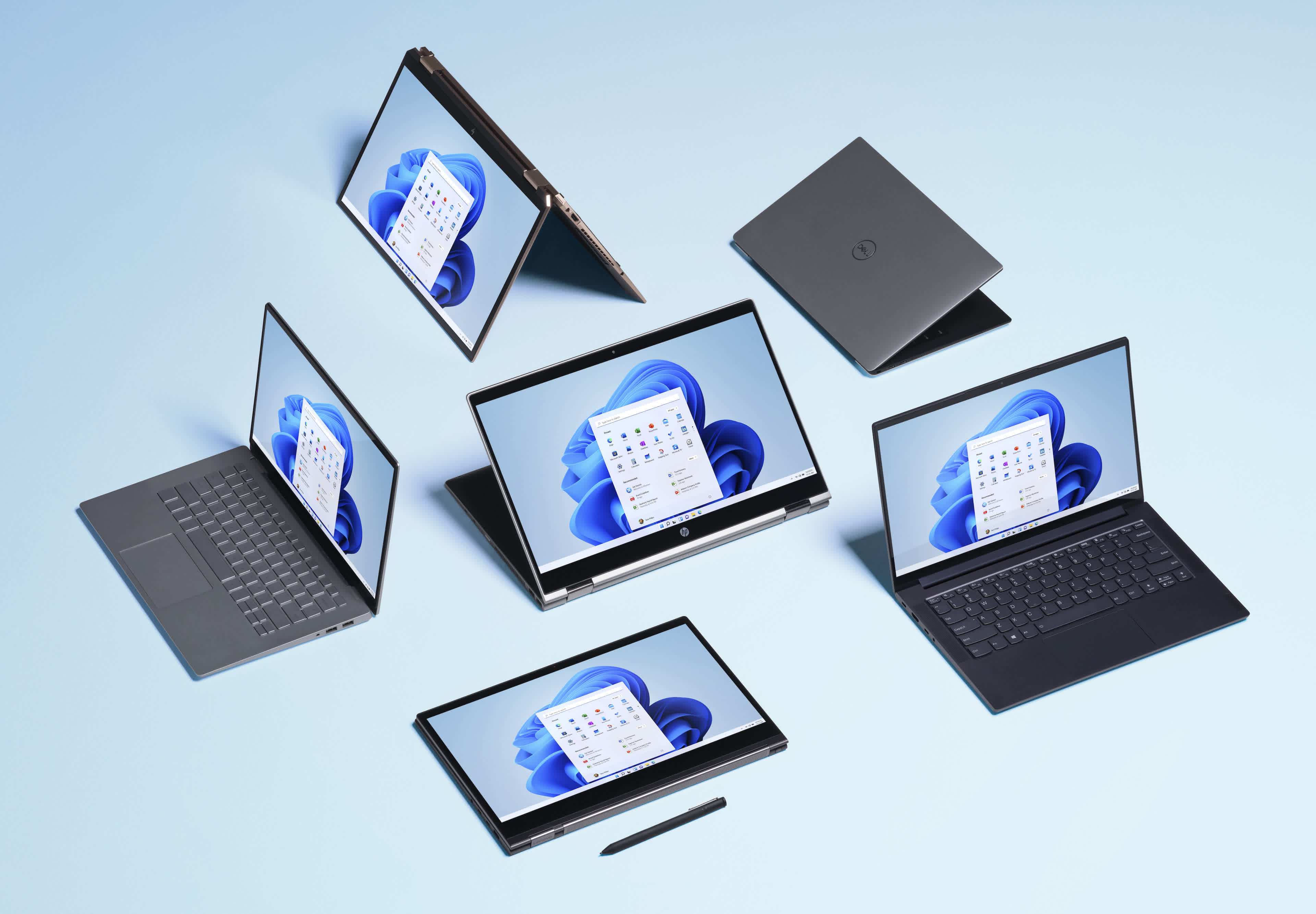
After weeks of teasers and leaks that indicated Microsoft was ready to turn Windows up to 11, now it's official -- the company today announced that Windows 11 is the next generation of Windows that sports a modernized interface and numerous improvements in usability across device form factors, performance, gaming-focused features, hardened security, and smart integrations with productivity tools like Teams.
As we already know from the recently leaked development build, the Start Menu now lives in the center of the taskbar and sports a UI that borrows a lot from the Windows 10X concept that Microsoft previously worked on for a separate project that's now essentially dead. In a sense, Windows 11 is a fusion between Windows 10 and Windows 10X that goes from rounded corners and the use of Fluent Design to making the Windows environment more customizable and even allowing Android apps to run on it alongside desktop apps.
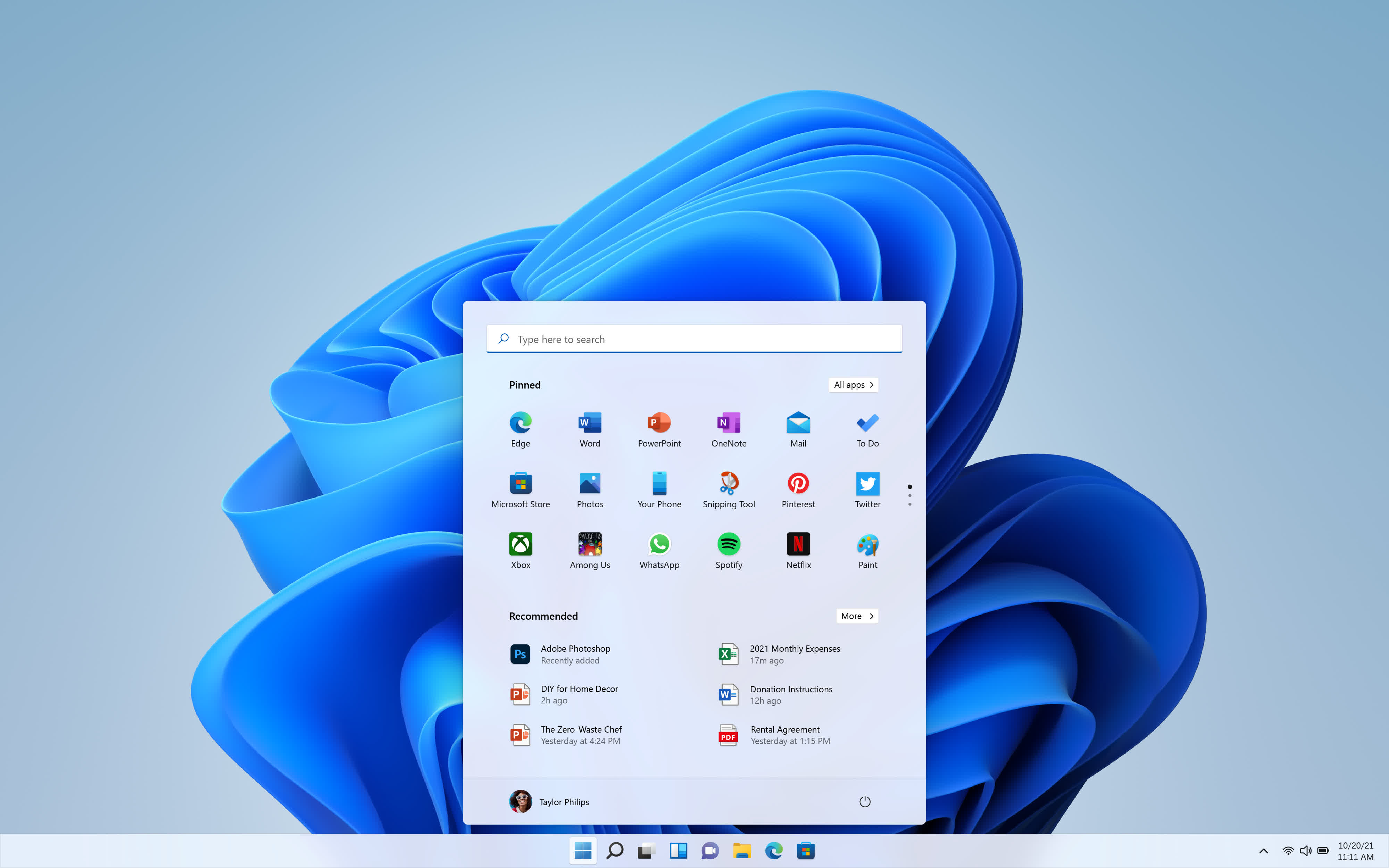
Live Tiles are now officially dead, which makes the Windows 11's Start Menu cleaner. Now it's a simple app launcher where you can also jump to recent documents, and when you need to do more you can always jump to the separate search interface.
The new interface has already drawn comparisons to macOS and Chrome OS, and for good reason -- Microsoft took inspiration from those operating systems to make Windows look more modern.
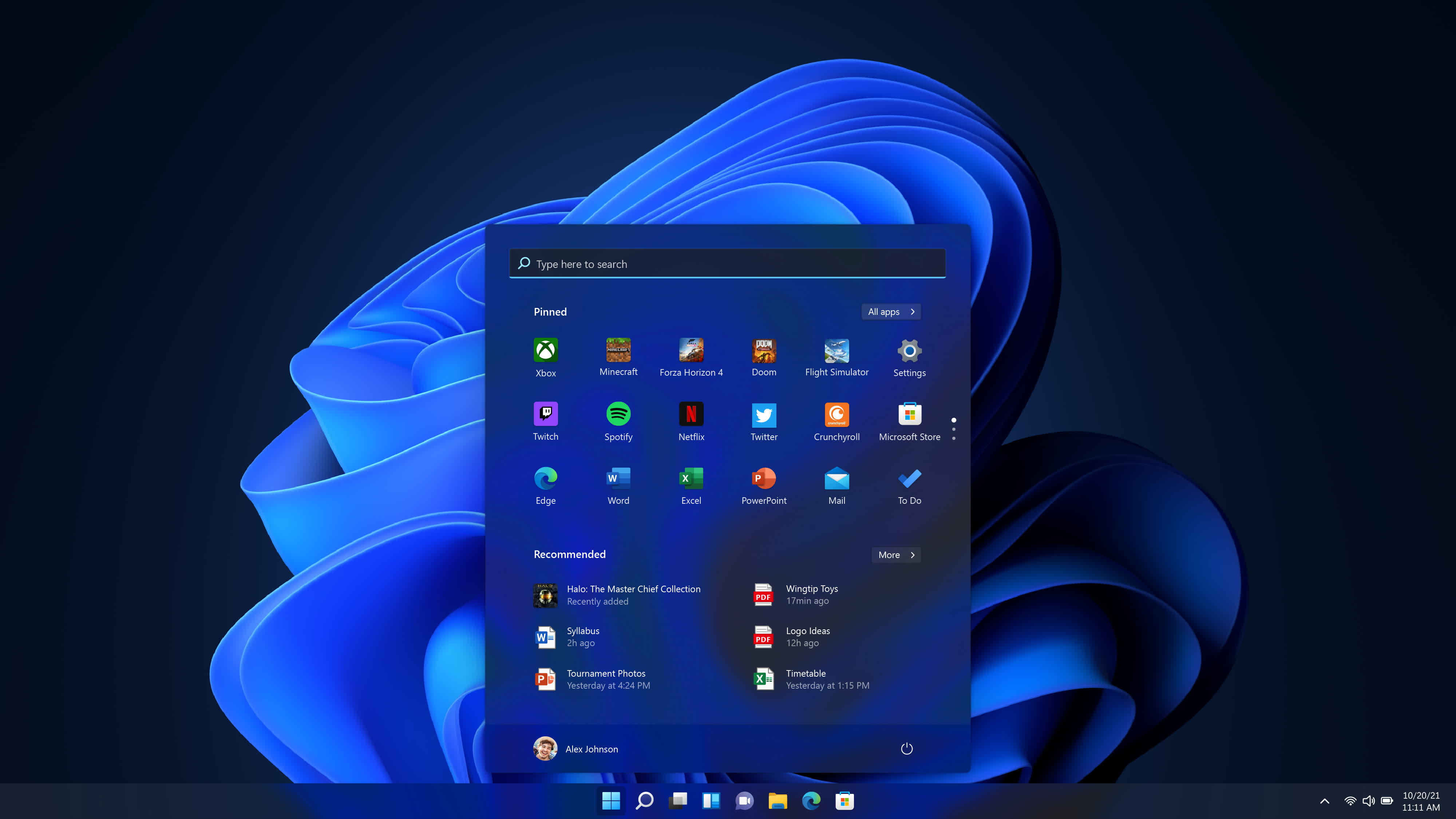
Many of you will no doubt be pleased to hear that Microsoft is updating the dark and light modes, which are a mess in Windows 10 and definitely needed more love. Panos Panay says the Windows team has "obsessed over every detail" to "put you in control and bring a sense of calm and ease," and it does look like this is more than just Windows 10 with rounded corners. Touch mode is also improved, as is inking which will support haptic feedback.
One area that has remained largely the same since Windows 7 was the window snap feature, but on Windows 11 this has been expanded with a flyout that allows you to quickly choose from several different window layouts to suit your personal preference.
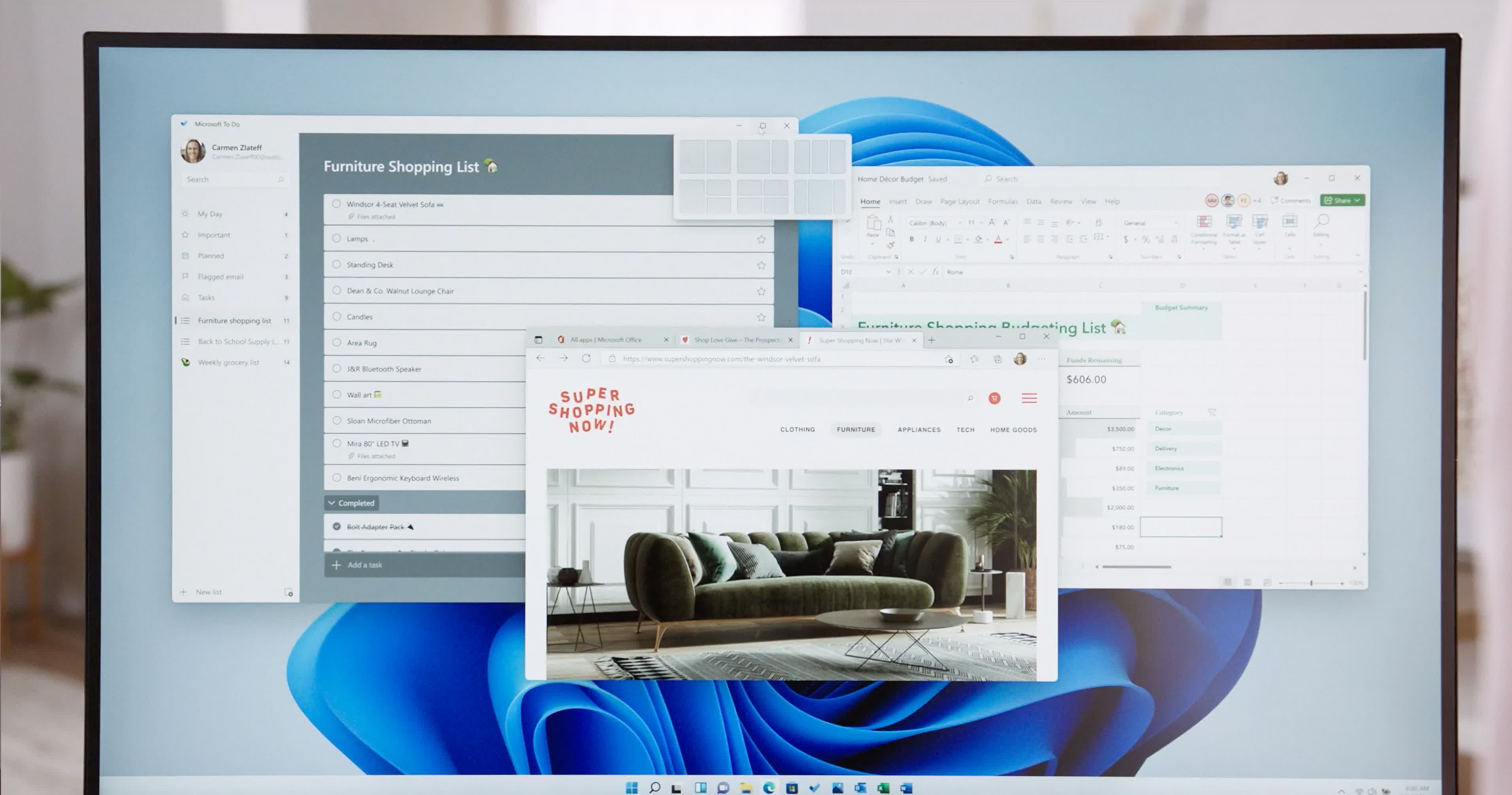
The new feature is called Snap Layouts, and its usefulness is doubled in conjunction with Snap Groups and Desktops that remember your window layouts for future use. It's a huge blessing for people who work on multiple monitors or routinely connect their clamshell or 2-in-1 to an external monitor.
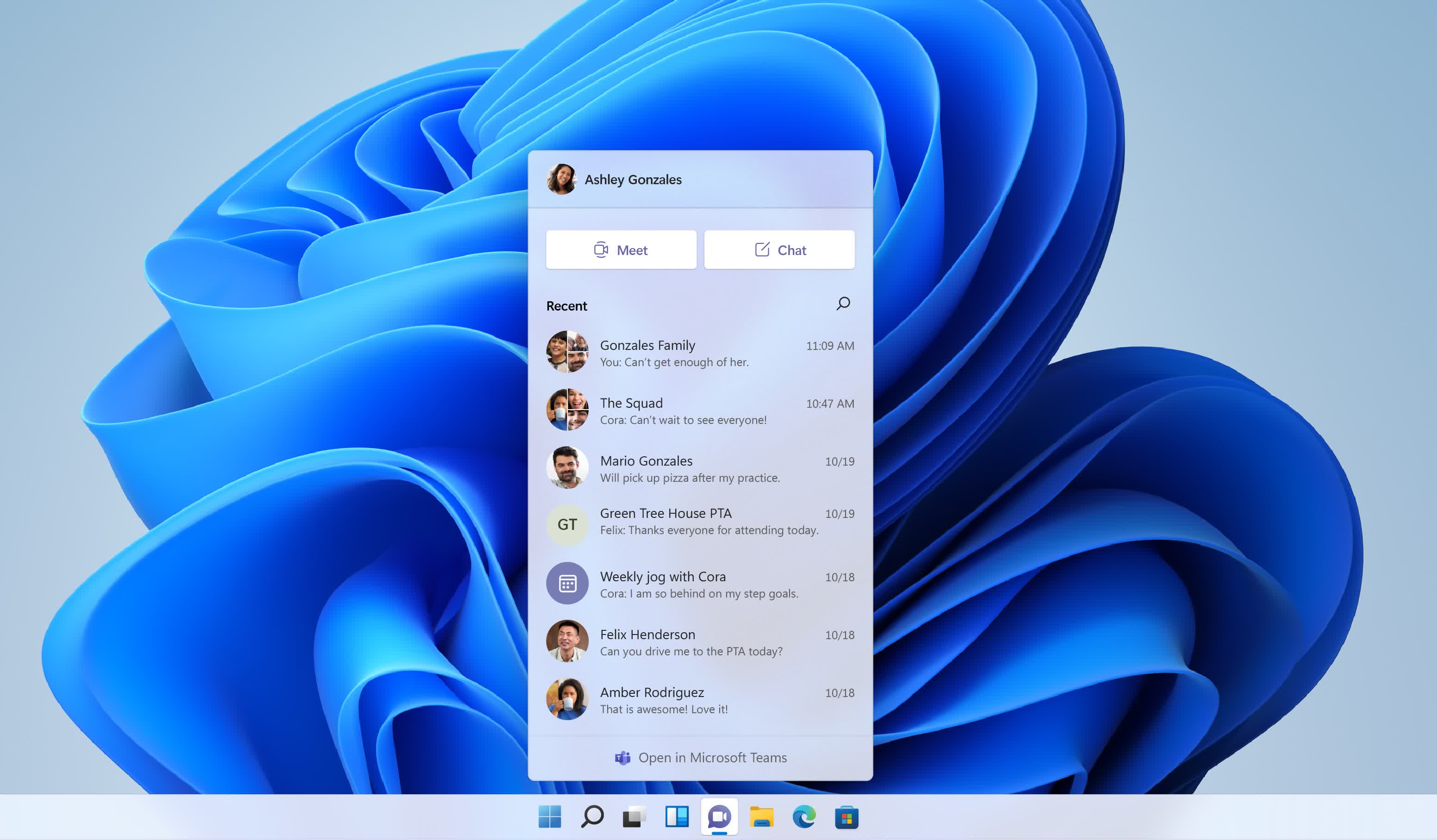
Microsoft is integrating Teams chat and videoconferencing functionalities directly into the Windows 11 taskbar, which is a big push away from the Skype integration in Windows 10 that never really sat well with users familiar with the desktop Skype app experience.
Skype is now fading in the background as Teams is quickly becoming one of the most used Office apps. At the same time, Teams is much more in line with Microsoft's philosophy of empowering people to be more productive, which is why the company is confident to put it front and center.
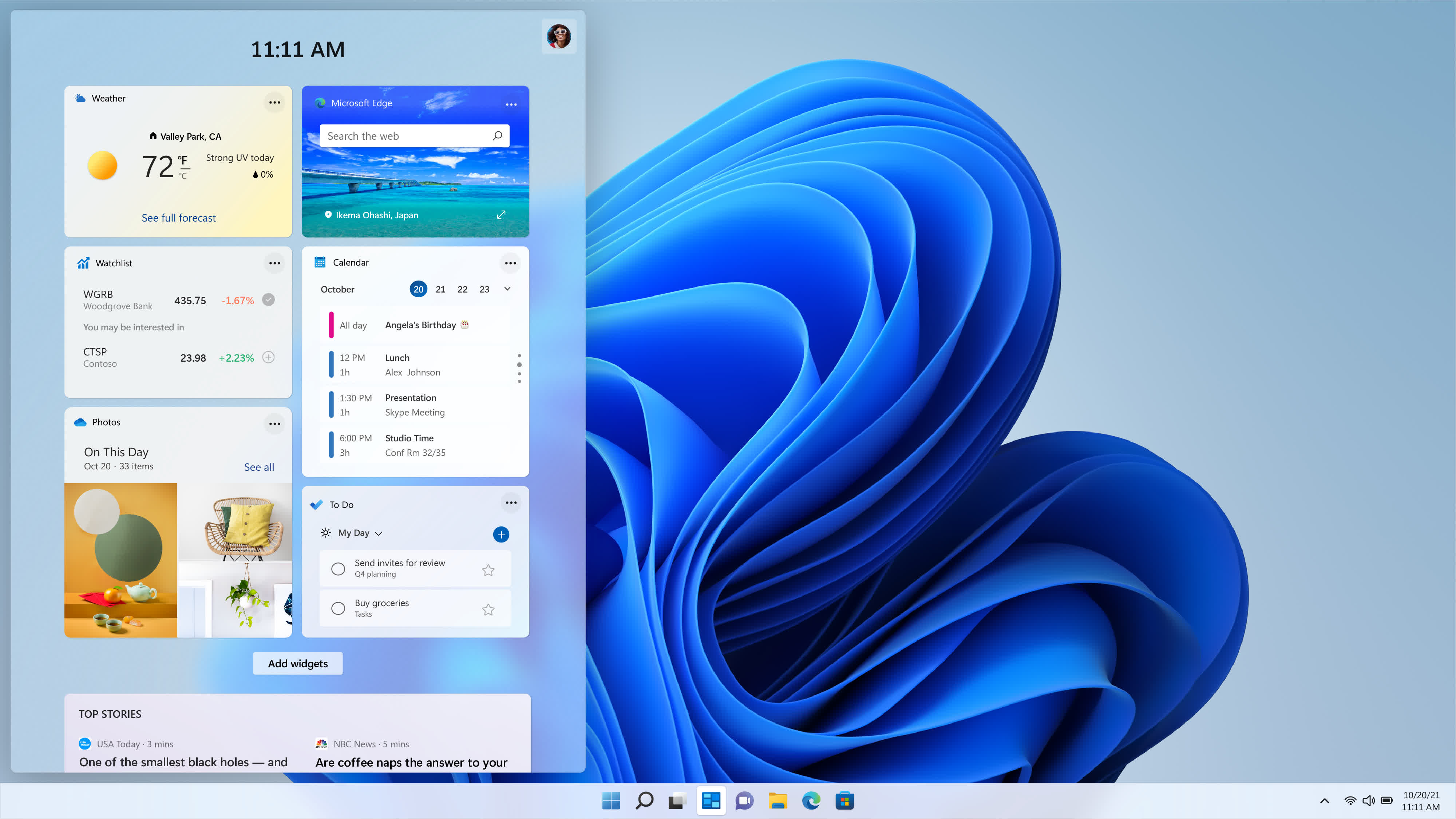
If you've loved Vista gadgets like I did, they're making quite the comeback in the form of Windows Widgets, which will live on the desktop on a dedicated interface powered by Microsoft Edge and machine learning.
A single click on the taskbar icon brings a personalized feed that slides in from the left side of the screen and looks a lot like the News and Weather one that Microsoft introduced for Windows 10. There will even be widgets that will allow you to keep up with your favorite global brands and local creators, which you'll be able to tip directly from the same interface.
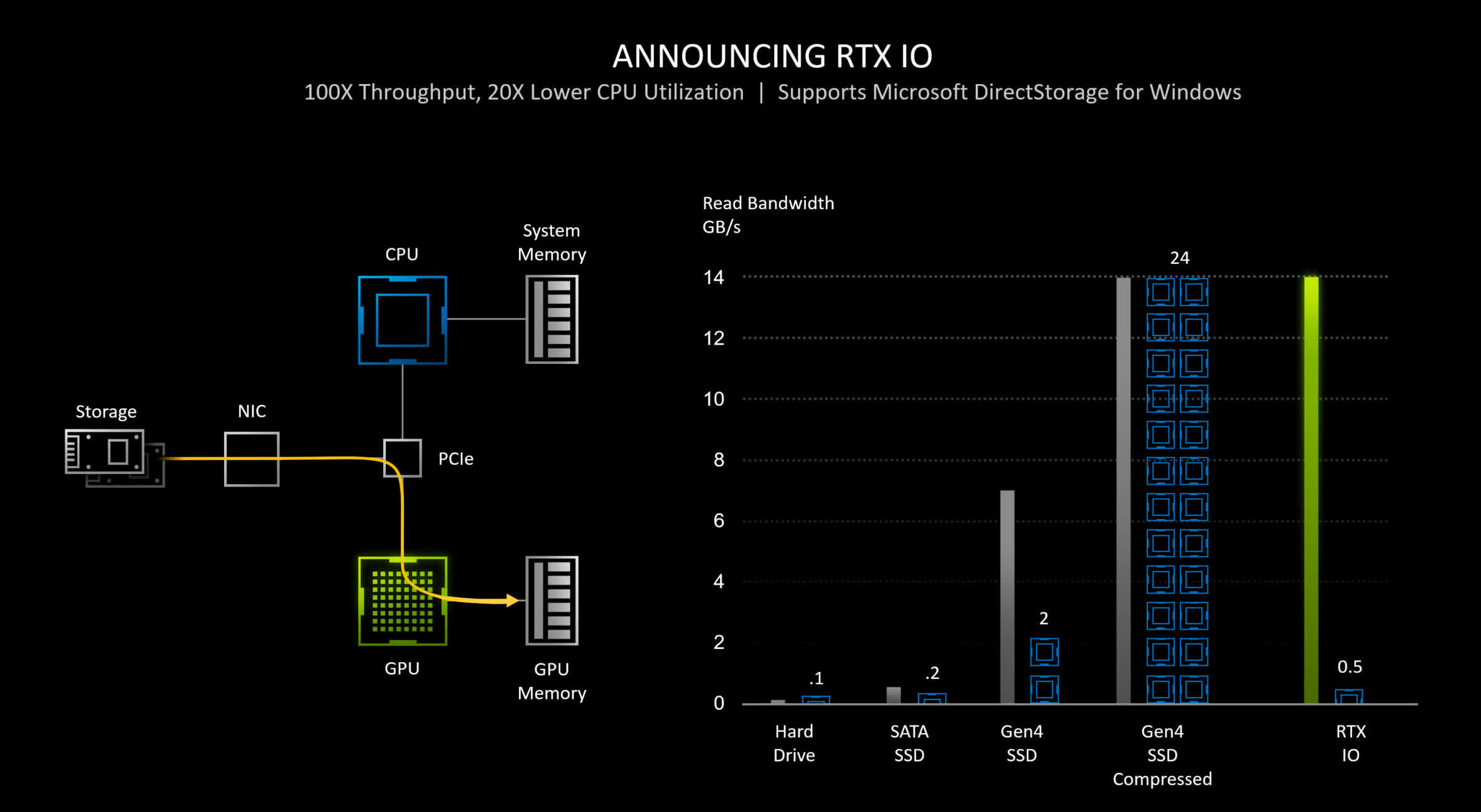
For gamers, Microsoft says Windows 11 will have you covered with a number of new features that will be available on release, such as DirectStorage for faster game load times, support for Xbox Series X's Auto HDR functionality, and more.
Chief among these is DirectStorage, which means that you'll finally be able to experience the full benefits of fast NVMe storage even if you've got a PCIe 3.0 SSD. Microsoft is also introducing a "DirectStorage Optimized" certification for Windows 11 PCs that will ensure they come with the proper combination of hardware and drivers needed to take advantage of the new functionality.
Additionally, Microsoft is baking Xbox Game Pass into Windows 11 via an upgraded Xbox app which you'll be able to use to play games on the xCloud service. The company has also learned from the mistakes made with Windows 10 updates where gamers and streamers were interrupted at the worst possible moments -- Windows 11 updates will be 40 percent smaller and will install in the background without interfering with your activity.
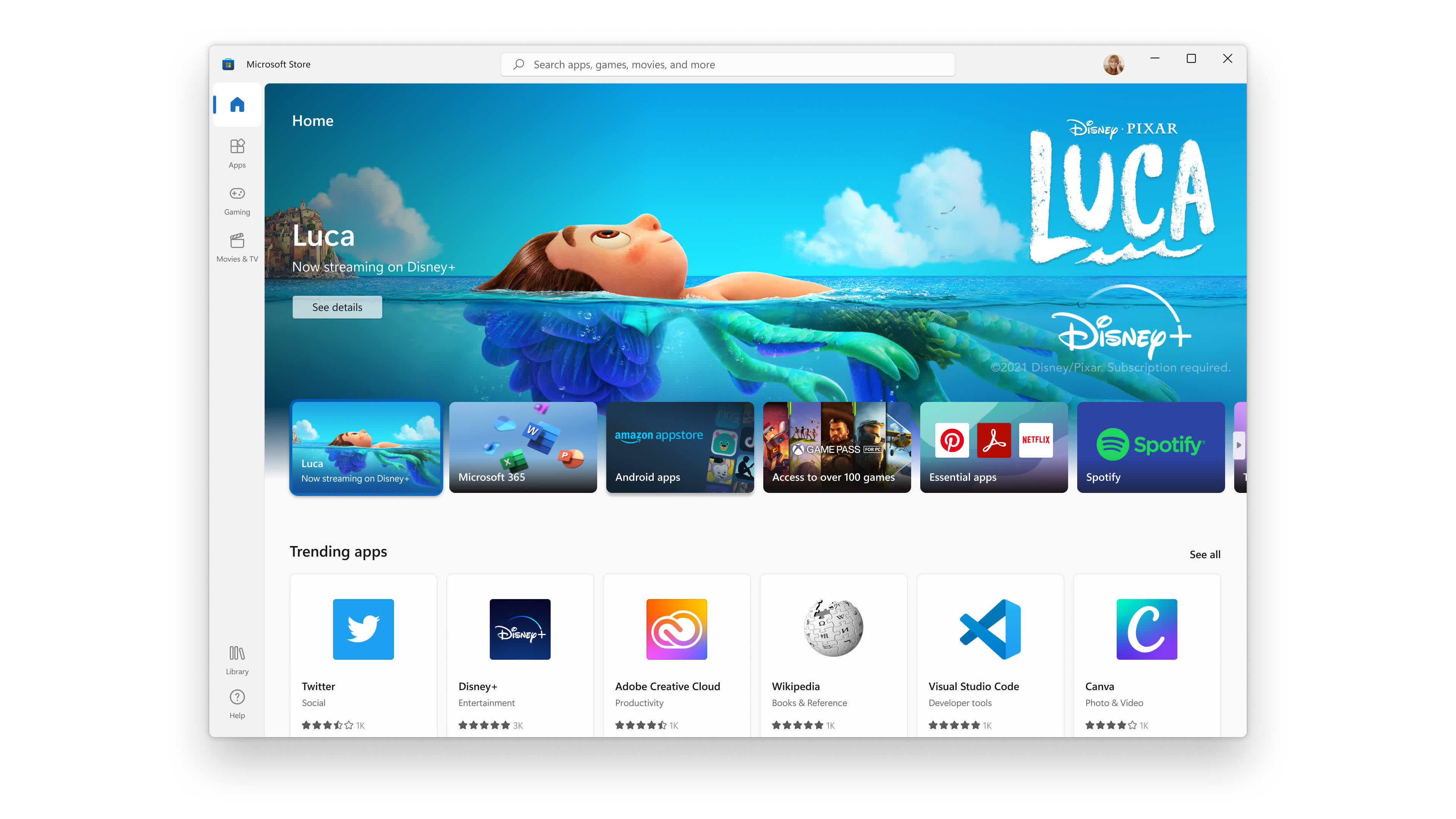
The Microsoft Store has already gone through a few incarnations, but Windows 11 will come with a completely redesigned interface for it and speed improvements that might just make users more inclined to use it. More importantly, the company is trying to one-up Apple and Google by allowing for unprecedented freedom for developers who want to bring their apps and games to the Microsoft Store.
In a surprise move, the company will allow developers to bring any kind of app to the Microsoft Store, regardless of the framework used to build it -- win32, UWP, Electron, React Native, progressive web apps, and even Android apps.
The first great example of that is Adobe's Creative Cloud suite, which will be accompanied by Zoom, Disney+, and Microsoft's Visual Studio. Additionally, Microsoft will highlight the best apps through Stories to make it easier to find them.
Microsoft today proved it wants to earn back developers' love, as it will allow them to choose between using the company's "commerce engine" with a revenue split of 85/15 percent for apps and 88/12 percent for games, and using their own payment system with no revenue sharing involved. That means that companies like Epic who have been reluctant to bring their games to the Microsoft Store no longer have a good excuse to continue in the same fashion.
The new Microsoft Store will also be more user-friendly, with small touches like letting you install web apps through it whenever you attempt to do so. This will manifest through a pop-up over the web browser you're using to access websites that can be installed as progressive web apps.
So there you have it -- Microsoft made a good case for Windows 11 being more than a simple Windows 10 reskin, and you'll be able to get a taste of it for yourself in the coming weeks through the Insider program. The company didn't provide a release date for Windows 11, but it's expected to arrive this fall as a free upgrade for Windows 10 users.
https://www.techspot.com/news/90189-microsoft-announces-windows-11-redesigned-ui-start-menu.html

